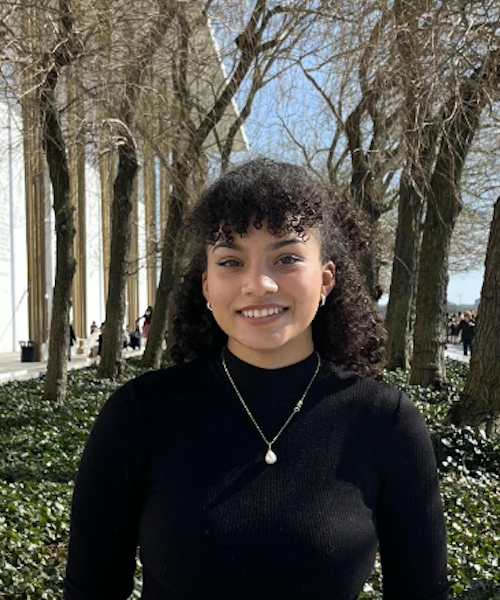
The Value of Different Points of View
Angela Hayes | December 19, 2022
Responding To: Georgetown Students Share Thoughts on Student Dialogue Experience with Peking University
John Williams
Over the past three weeks, I had the honor to discuss some of the world’s most pressing problems with students from Peking University (北大) in the fall 2022 U.S.-China Student Dialogue. The dialogue was meaningful on a global scale: students from the best universities in the capitals of both the United States and China were getting together to make friends and brainstorm solutions to global problems. I am confident that some of the participants in the dialogue will eventually make momentous shifts in the trajectory of the United States or China, and I believe that the camaraderie fostered and ideas raised in this dialogue will guide them to promote greater cooperation and understanding between our two nations.
During the first week of the dialogue, I was paired with several other Georgetown students and three students from 北大 to discuss the UN SDGs and the challenge of poverty alleviation. I found the conversation about the strengths and weaknesses of the SDGs particularly meaningful. In the conversation, I brought up some context necessary to understand the SDGs: the UN’s Millennium Development Goals (MDGs). The MDGs were established in 2000 as a guidepost for global development. However, critics of the MDGs see them as a patronizing Western-centric attempt to proselytize Western-style development. While the SDGs also receive their fair share of criticism, I noted to my group that they are designed to be a framework that both developed, developing, and least developed countries (LDCs) can use as guidelines. For example, while the MDGs focused on reducing child mortality, malaria, and other ailments disproportionally affecting LDCs, the SDGs focuses on ubiquitous issues such as quality education, responsible consumption and production, and good health and well-being. In this way, the SDGs are successful because they offer development guidance all nations, not just the least developed.
I also found the conversation about the different approaches the United States and China have taken to alleviate poverty fascinating. Regarding the United States approach, I explained public-private partnerships such as Merck’s initiative to provide ivermectin for free to Africa to combat river blindness. Because of the stellar production and values of many of the U.S.’s industries, the United States can engage in high-impact public-private partnerships to provide aid abroad. Since the inception of Merck’s public-private partnership, for example, the company has indicated that some 16 million children have been spared the risk of infection in 11 countries in West Africa. My Chinese colleagues also had fascinating perspectives on how China has offered development aid abroad. First, they brought up the important point that China has lifted most of its 1.4 billion people out of abject poverty, a stupendous achievement to be sure. According to my Chinese colleagues, the Chinese government achieved this by sending highly qualified doctors, engineers, and mayors to rural villages to build ground-up solutions to their most pressing problems. China has exported the wealth of knowledge gained from these initiatives to other countries in Southeast Asia, where they have engaged in similar project. One of my Chinese colleagues used an idiom to explain China’s approach to development that I shall not forget: “授人以鱼不如授人以渔,” which is similar to the English idiom “give a man a fish, he eats for a day. Teach a man to fish, he eats for life.”
Learning college students in China were just as passionate about solving global issues as my classmates in the United States was the most important takeaway from the dialogue, and a glimmer of hope I will cherish as I continue to study the relationship between the United States and China. I would highly recommend all students to apply to partake in this rare opportunity to ideate global solutions to global problems with some of China’s brightest university students.
John Williams (SFS'23) (韦志安) is a senior in Georgetown’s School of Foreign Service studying emerging technology and minoring in Mandarin and history.

Angela Hayes | December 19, 2022

Hanh Duong | December 19, 2022

Will Foster | December 19, 2022

Miles McInerney | December 19, 2022

Ignacio Albe | December 18, 2022

Margaret Lin | December 18, 2022

Amisha Gupta | December 18, 2022

Bailey Brya | December 18, 2022

Jasmine Terry | December 18, 2022

Ameena Razzaque | December 17, 2022